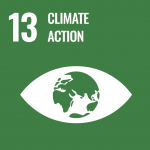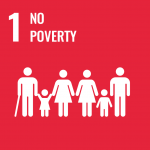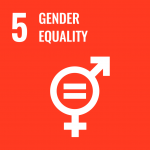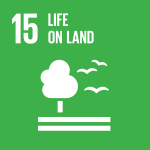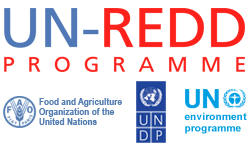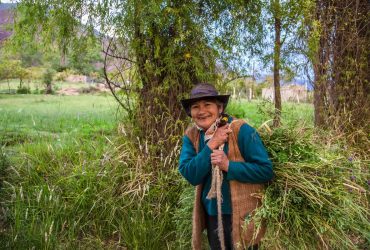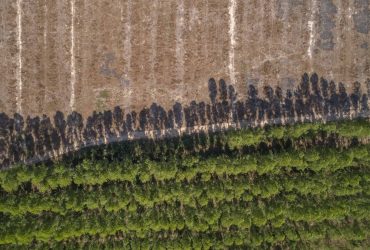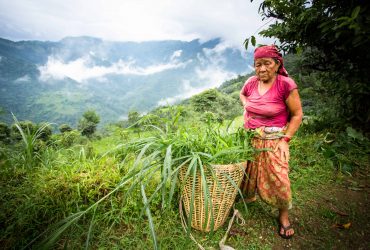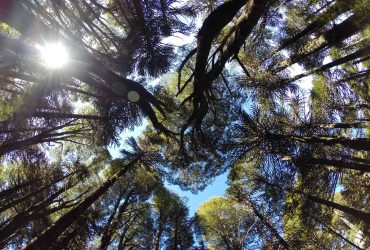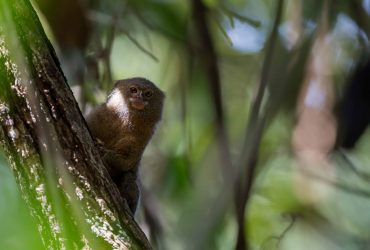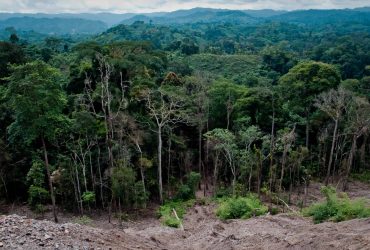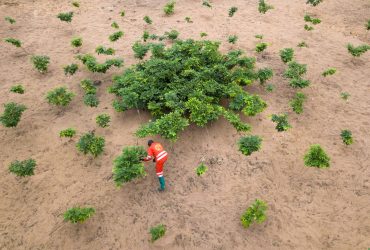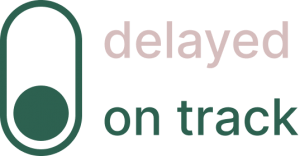


Forest Solutions Realized: Continued planning and discussions have taken place with the REDD+ Secretariat at FONAFIFO on updating the baseline and several layers for the co-benefits monitoring report to be prepared as part of their annual reporting to the Carbon Fund. Different options for preparing a new biodiversity baseline and other layers were scoped and mapped and will be finalized in early 2023.
Forest Solutions Rewarded: Significant progress has been made supporting Costa Rica in meeting the TREES requirements to achieve certification under the standard. During 2022, the following documents were developed and submitted to the ART Secretariat: (i) TREES Registration document (2017-2021), (ii) the first TREES Monitoring report (2017-2019), and (iii) two variance requests. The ART Secretariat cleared these documents in October, 2022. Legal and technical advice was provided to ensure Costa Rica could activate a Registry account. Also, the Validation and Verification Body, Aster Global, was selected in the platform and had to complete the conflict-of-interest disclosure forms. The inception meeting of the verification process is expected to take place in early 2023.
Technical assistance has also been provided to the government to assess the draft ERPA contract proposed by Emergent for the Costa Rica submission. This assessment included an analysis of the ERPA process, the document’s structure, issues identified (including elements on safeguards), and recommendations. Moreover, discussions were supported at the technical and political levels on the use of proceeds and the arrangements for a financial intermediary, as required by the ERPA. During 2022, Costa Rica nominated a national entity, FUNBAM (Environmental Bank Foundation), as the potential Financial Intermediary for REDD+ results from 2017. Costa Rica initiated negotiations directly with Emergent to sign a Financial Intermediary agreement between FUNBAM and Emergent.
UN-REDD also assisted Costa Rica with some bilateral and multilateral knowledge and policy exchanges that addressed national issues with REDD+ performance finance and LEAF access.
In addition, a concept note was developed to organize an exchange of experiences among countries on carbon ownership, to be led by Costa Rica and supported by UN-REDD. In light of the legal requirements recently established in carbon schemes, whether in the context of carbon markets (ART-TREES, VCS JNR) or Results-based Payments (RBP) schemes (GCF, FCPF), a country legal report for Costa Rica has been produced, analyzing the challenges and opportunities related to the definition and transfer of carbon rights in the context of REDD+. The report is part of a series of 27 reports produced by the White&Case law firm on a pro bono basis in collaboration with FAO and UN-REDD.
Although a rights-based approach is necessary, certain countries that have enacted a devolution of carbon rights to the programme entity at the national scale by signing individual contracts with landowners face challenges due to the lack of human and financial capacities and high transaction costs, and have expressed concerns in this regard. This is the case in Costa Rica. It is expected that a follow-up discussion will take place in 2023 to better understand if alternative solutions are available, and what type of legal action is required.
Forest Solutions Enhanced: In the context of the GCF REDD+ Results-based Payment project approved in October, 2020, a second disbursement of $13.3 million was successfully channelled to support the National Payment for Environmental Services Programme. This represents a total of $37 million disbursed to FONAFIFO and the National Forest Fire Prevention and Management Programme since 2021. This equals nearly 75 percent of the total project cost. This detailed second technical verification process included extensive desk reviews and field visits using robust statistical methods. This process concluded the following results in 2022:
156,464 hectares under forest protection active contracts within the PES Program, of which:
9,635.5 hectares under natural regeneration active contracts within the PES Program benefiting 900 forest landowners. These contracts include:
95 percent of the Indigenous territories have interest letters confirming their participation in the free, prior, informed, and consent process to build a Forest and Territorial Environmental Plan to access climate finance resources benefiting 12,000 people in 16 Indigenous territories. This is a prerequisite underpinned by an exclusion criteria indicator under the PBPA that ensures compliance with social safeguards and Indigenous rights. The results from those territories are:
The biggest challenge that Costa Rica is facing is the long and sometimes patchy process of negotiation with Emergent to sign an agreement with FUNBAM as a Financial Intermediary, as well as to sign an ERPA. This has endangered the sale of the 2017 REDD+ results, which are not attractive to corporate buyers looking for results obtained after 2020.
Another challenge has been securing the start of the validation and verification process by Aster Global, the only company approved by the ART Secretariat for this required process. Even though the company was already hired in 2021, when the TREES registration and monitoring document were uploaded to the ART registry, the company has not made itself available to start the process anytime during 2022. Meanwhile, UN-REDD provided support to prepare all the relevant national agencies and stakeholders involved in the verification process, aligning their agendas. An inception mission may be feasible for the beginning of 2023. Yet, in essence, the lack of variety and competition in terms of companies accredited to conduct the validation and verification jeopardises the country’s efforts and access to performance finance.
Finally, two variance requests had to be negotiated and submitted to the ART Secretariat for the approval by the ART Board. These variance requests were related to: (i) addressing the technical limitations of the current national data and system for the development of land use and land use change (LULUC) maps, which means that it is not feasible to accurately stratify between commercial forests and natural forests, as required by ART-TREES; (ii) a variance to submit the 2020-2021 Monitoring Report in 2023. Accordingly, technical support was provided to Costa Rica, including support to evaluate the viability of different technical approaches for such a variance, draft text for several iterations of the variance request submission, and facilitate a process of informal engagement, technical guidance and questions and answers between Costa Rica and the ART Secretariat on the proposed variances, which were ultimately approved.
Despite some gender guidance gaps in the ART-TREES standard, Costa Rica proactively integrated explicit gender considerations in their TREES registration document and the monitoring under the safeguards section.
The process for LEAF is anchored in a solid and systematic mechanism of social inclusion and engagement of Indigenous peoples developed since the origins of the REDD+ strategy in Costa Rica. Since 2008, FONAFIFO has held a continuous dialogue platform with leaders of the 24 Indigenous territories of Costa Rica. In 2011, the national consultation process for REDD+ began, which included three stages: information (2011-2014), early consultation (2014-2017), and in-depth strategic consultation, all of which underpins the TREES compliance process and the pathway for LEAF engagement.
Currently, there is a national process of preparation for the Forest and Territorial Environmental Plan (PAFT). The PAFTs are vehicles to address the risks identified in the activities implemented in the National REDD+ Strategy, including the participation of Indigenous territories under the PES Programme. The PAFTs will establish how Indigenous peoples implement the actions identified as priorities within the Indigenous territory, the benefit sharing of the climate resources, and the transparency and accountability of these resources. Costa Rica is also using this national process of development of the PAFT to share information and consult with Indigenous peoples on potential sources of climate finance, such as the voluntary carbon markets through the sale of TREES credits. The first workshop to raise awareness in the Indigenous leadership of the negotiation with the LEAF Coalition for the sale of TREES credits took place early 2023 in San Jose, with in-person attendance of Indigenous leaders from 20 IP territories.
Costa Rica is already engaged in REDD+ Results-based Payment initiatives from both market and non-market sources. In 2020, the country signed an Emission Reduction Payment Agreement (ERPA) with the World Bank’s Forest Carbon Partnership Facility for up to 12MtCO2 or $60 million. In 2022, the country was able to report results and receive the first disbursement of $16,415,110 out of the $60 million from the FCPF. Costa Rica also provided a ground-breaking report on the non-carbon benefits of the implementation of the FCPF ER Programme, with support from UN-REDD. This has now become the global standard for reporting on non-carbon benefits at a jurisdictional scale.
In October, 2020, Costa Rica received approval from the Green Climate Fund for a $54 million REDD+ Results-based Payment proposal to the GCF for emissions reductions achieved in 2014 and 2015. In February, 2021, the Government of Costa Rica and UNDP signed a Technical Support Services agreement to design and implement a diversified strategy to access REDD+ Result-based Payments from market and non-market sources.
These efforts and partnerships are also integrated with the UN-REDD Technical Assistance for LEAF engagement and ART-TREES compliance, as well as with the ongoing FCPF work under the umbrella of the National REDD+ Secretariat’s workplan for 2022.
The implementation of the National REDD+ Strategy contributed and will continue to contribute to numerous Sustainable Development Goals beyond the obvious contribution to SDG 13. They include SDG 1, 5 and 15.
